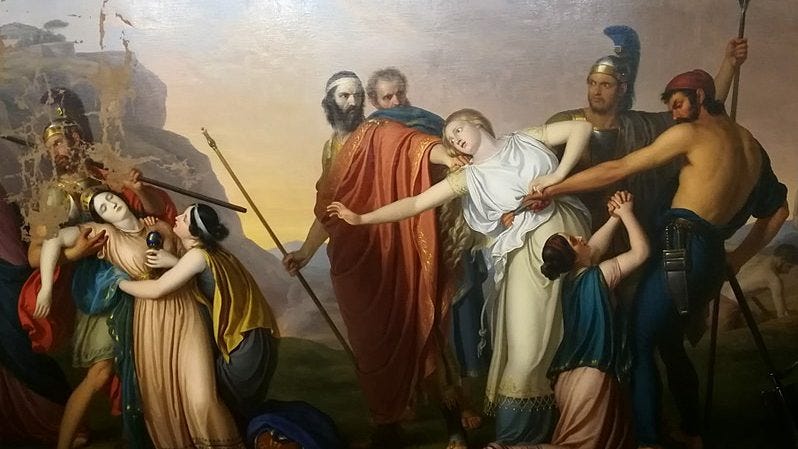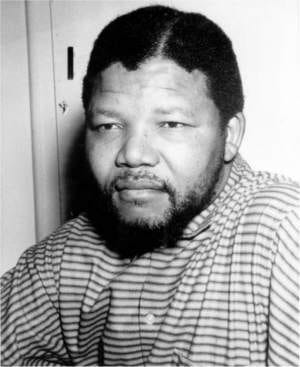The real value of the humanities
We all owe a debt to the humanities. The debt has been accumulating for thousands of years. It is not calculated in dollars and cents, but in ideas.
In the late 1960s, a group of inmates in South Africa’s notorious Robben Island prison staged a performance of Sophocles’ 2000-year-old tragedy, Antigone. One prisoner, despite having little stage experience, was keen to participate. His name was Nelson Mandela. In his autobiography, Long Walk to Freedom, Mandela describes his role as King Creon:
At the outset, Creon is sincere and patriotic, and there is wisdom in his early speeches when he suggests that experience is the foundation of leadership and that obligations to the people take precedence over loyalty to an individual. But Creon deals with his enemies mercilessly. He has decreed that the body of Antigone’s brother, who had rebelled against the city, does not deserve a proper burial. Antigone, who is grieving, rebels on the grounds that there is a higher law than that of the state. Creon will not listen to Antigone; neither does he listen to anyone but his own inner demons. Antigone symbolized our struggle; she was, in her own way, a freedom fighter, for she defied the law on the ground that it was unjust.
A few years later, the South African playwright, actor and director, Athol Fugard, produced a play based on Mandela’s prison performance. He called it The Island. Fugard’s play highlighted the parallels between Antigone's situation and Mandela’s struggle against an oppressive regime.
South Africa’s apartheid laws prevented Fugard’s cast of black and white actors from appearing together, so The Island debuted in London. Shortly thereafter, it opened in New York. And ultimately, the play was performed around the world. Audiences, horrified by the cruelties of apartheid, encouraged their respective governments to bring sanctions against the South African government. Mandela attributed the defeat of apartheid, in part, to the political activism encouraged by Fugard’s play.
This was not the only time that Sophocles’ 2000-year-old-play mobilised modern audiences to fight for political change. In 1944, during the Nazi occupation of France, the legendary French dramatist, Jean Anouilh produced a version of Antigone in which the struggle between Creon and his niece served as a symbol for the freedom fighters defying the German conquerors. The play became an effective recruitment tool for the Resistance.
In the late 1980s, when Poland suffered under martial law, Andrzej Wajda directed what is known as the “Solidarity” Antigone. The production was designed to rally support for Lech Walesa’s anti-government Solidarity movement. Just to make sure the audience got the point, Wajda dressed Antigone and the chorus in blue workers’ overalls, while Creon and his henchman wore the loud suits favoured by Mafia dons.
More recently, Seamus Heaney, the Irish Noble Laureate, created his own version of Antigone, which he called Death in Thebes. Heaney used the struggle between Antigone and Creon to draw attention to the troubles that plagued Ireland for decades.
I could go on, but I am sure you get the point. We often judge plays by their ticket sales. Using this measure, Antigone’s theatre receipts over 2000 years of performances must be huge. But the real value of Sophocles’ play is not monetary—it’s moral. In his Nobel Prize acceptance speech, the American author, William Faulkner, claimed, “The past is never dead. It is not even past.” Antigone’s influence on modern politics shows that Faulkner was correct and demonstrates the immense power the humanities exercise over our lives.
Despite their influence, the humanities are in crisis. Academics feel undervalued. They worry about being tossed overboard as leaky finances force universities to jettison their disciplines just to keep afloat. Language departments have been disappearing for years. More recently, classics and philosophy have begun to fade away as well. History is still alive, but nothing is sacrosanct. The Australian government has doubled the cost of a humanities degree, claiming that only “job-ready” subjects, such as nursing and engineering, should receive public subsidies. Students who wish to waste their time on frivolous pursuits, such as the humanities, should pay the full cost themselves. Stingy, I know, but it fits our times. Instead of the best education that our money can buy, we now seek the education that will bring in the most money.
Don’t get me wrong. I’m not against capitalism, money, or getting rich. I agree with the legendary screen siren, Mae West, who famously said, “I’ve been rich, and I’ve been poor and believe me baby, rich is better.” Of course, she was correct. Money is the tool by which we reach our social goals. When asked why the church is always asking for money, one vicar always replied, “No margin, no mission.”
The vicar makes sense, but first, we must have a mission. Unfortunately, modern universities have largely abandoned their traditional aims—preserving the culture, extending knowledge, and building character. Instead, they justify their existence by their impact on the Gross Domestic Product. Last year, the Group of 8 research-intensive universities boasted that their members contributed $66.4 billion to the GDP. For these universities, money is no longer just a tool; it is now their goal. These universities have transformed means into ends.
The topics addressed by the humanities—truth, honour, beauty, love, kindness, wit, courage—are rarely mentioned in university press releases. Yet, when it comes time to sum up our lives, these are the only things anyone ever cares about. I know it’s been said before, but it bears repeating, we seem to know the price of everything and the value of nothing.
We all owe a debt to the humanities. The debt has been accumulating for thousands of years. It is not calculated in dollars and cents, but in ideas. Our form of government, our social institutions, and our way of life rest on a foundation laid by the humanities. Of course, we may regret some aspects of our history, but this does not mean we should ignore, erase, or cancel the past. Instead, we should learn the lessons that history can teach us.
Even grumpy old Karl Marx understood this. “Men make their own history,” he said, “but they do not make it just as they please; they do not make it under circumstances chosen by themselves, but under circumstances … transmitted from the past.”
Marx was wrong about many things, but he was certainly right about this. If we want to build a better future, we must first learn about the good and bad ideas that brought us to where we are today. Preserving and transmitting our shared inheritance is the humanities' job—and the true value.
[This article is an edited excerpt from a speech given to the Ramsay Centre for Western Civilisation.]




Around 1961-2 Anouilh’s English version of Antigone first played in the London School of Economics theatre (or so I understood). I wasn’t involved, but on the opening night the sounds man was ill, and I was asked to step in. I knew nothing of the play, and high above the stage I couldn’t see much of what was going on. I had some instructions to follow. The play was set in mid-century costumes with mid-century weaponry. At the end, Antigone was shot.
Unknown to me, the shooter had a sub-machine gun, to fire a volley. There was a dramatic build-up, with a lot of activity on stage. At my cue, I fired a single shot. The cast froze; there was dead silence in the theatre as Antigone slowly sank to the floor. Both the cast and the audience were stunned by the sudden transition. After a minute or more, tremendous applause rang out, and I believe the single shot was used thereafter.
And, yes, I agree with your concerns. To me education in Australia over the last 25-30 years has been increasingly about left-wing indoctrination rather than a sound basis for life.